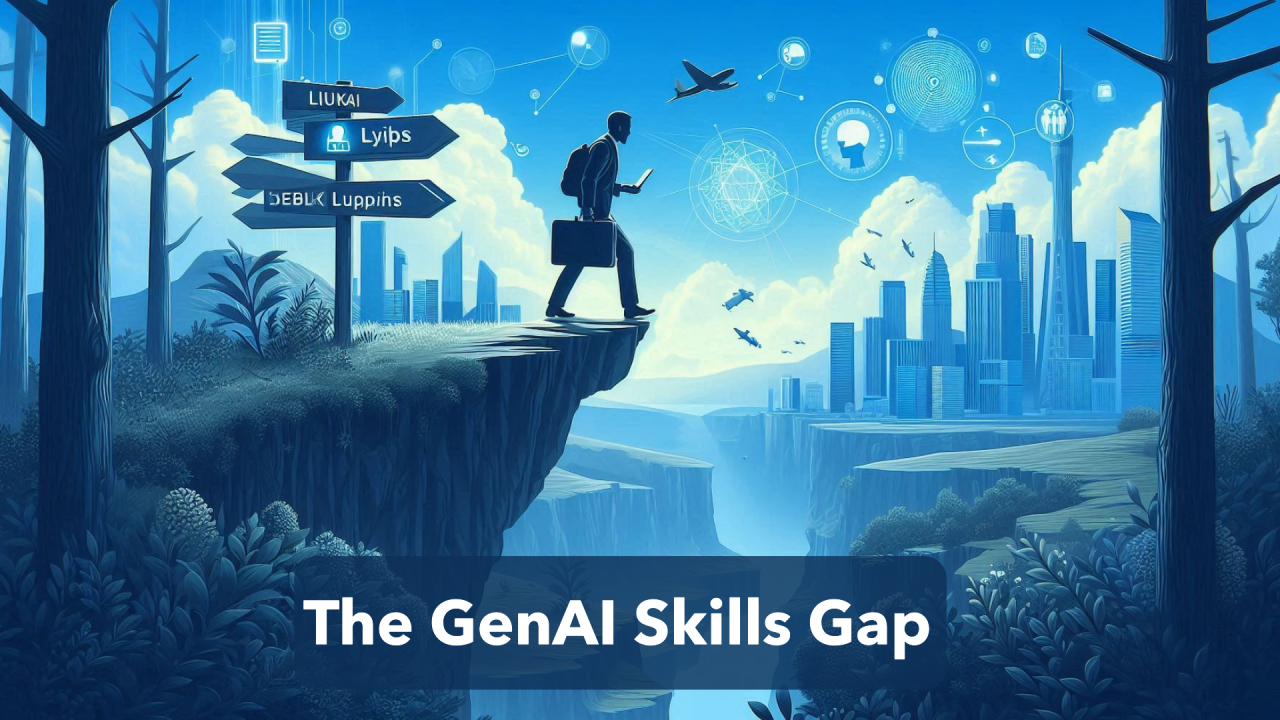
The GenAI Skills Gap: An urgent challenge requiring immediate attention
The data paints a stark picture of the current landscape. A significant majority (66%) of corporate leaders consider AI skills crucial for new hires, yet a mere 5% of companies have implemented comprehensive AI reskilling programs, according to a recent Microsoft Survey. This disparity results in a growing divide between the increasing demand for GenAI expertise and the constrained availability of qualified talent. However, the potential of GenAI in the financial sector is immense and promising. The McKinsey Global Institute estimates that GenAI could add between $200 billion and $340 billion in value annually to the global banking sector, equivalent to 2.8-4.7% of total industry revenues. This offers a bright future for those who are prepared to seize it, and your role in this is crucial:
The Skills of Tomorrow's Financial Professionals
To thrive in this new landscape, financial professionals need to develop a hybrid skill set:
Bridging the Gap: Strategies for Success
1. Invest in Continuous Learning
The pace of AI innovation is relentless. Financial institutions must prioritize ongoing education:
2. Foster a Culture of Innovation
Create an environment where experimentation with GenAI is encouraged:
3. Rethink Recruitment and Retention
To attract and keep top AI talent:
4. Collaborate Across Industries
The GenAI skills gap isn't unique to finance. Cross-industry partnerships can accelerate skill development:
5. Embrace Ethical AI Practices
As we rush to adopt GenAI, we must not lose sight of ethical considerations:
The Road Ahead
Drawing from my extensive experience spearheading AI initiatives across diverse business units in the financial sectors, I've witnessed the revolutionary potential of advanced analytics, particularly in generative AI. This transformative power, however, often comes hand-in-hand with apprehension and resistance within organizations.
My professional journey has reinforced a fundamental belief: when implemented thoughtfully, advanced analytics augments and empowers our workforce rather than supplants it. The crux of successful AI adoption lies not just in the technology itself but also in our ability to communicate its value and implications effectively.
Clear, transparent dialogue about AI's role in enhancing human capabilities is paramount. It's crucial to foster an environment where employees understand that AI tools are designed to elevate their work, enabling them to focus on higher-order tasks that require uniquely human skills such as creativity, emotional intelligence, and strategic thinking.
In my experience, organizations that thrive in the AI era prioritize this human-centric approach, viewing AI as an influential collaborator rather than a replacement. By demystifying AI through open communication and emphasizing its role in professional growth, we can mitigate fears and cultivate a culture of innovation and continuous learning.
Ultimately, the successful integration of AI in finance hinges on our ability to align technological advancements with human expertise, creating a synergy that propels our industry forward into a more efficient, insightful, and dynamic future.
A Call to Action
The GenAI skills gap in finance is real but also an unprecedented opportunity. Here's what every decision-maker can do today:
Ready to lead the GenAI revolution in finance? Connect with me to discuss how we can collaborate on bridging the skills gap and shaping the future of our industry.
What's your biggest challenge in adopting GenAI in your financial institution? Share your thoughts in the comments below!
#Upskill #AITraining #MachineLearning #WorkforceDevelopment #AIEducation #DataScience #AIWorkshops #TechSkills #FutureOfWork #DigitalTransformation #ContinuousLearning #AIInnovation #SkillDevelopment #ProfessionalGrowth #AIForAll #LearningAndDevelopment #TalentDevelopment #AICommunity #EdTech #CareerAdvancement
AI Governance Expert | EU AI ACT | CEO at SAFE AI NOW | ?? Creating path for robust, legal and responsible AI
2 个月Georg Langlotz Thank you for highlighting this important issue. From a compliance perspective, it's worth noting that AI literacy will become an obligation under the EU AI Act starting in February 2025. For those interested in this topic, I’ve written more about the need for an AI Skills Strategy in my blog post here : https://www.safeainow.com/blog/why-an-ai-skill-strategy-is-needed-now